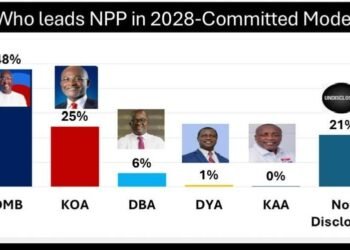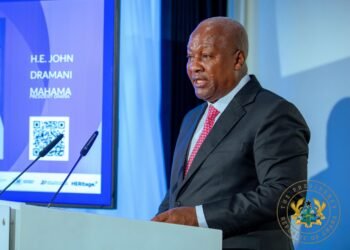The Minister for Justice and Attorney General (AG), Godfred Dame has guaranteed, Kissi Agyegbeng, the new Special Prosecutor (SP), autonomy in his operation.
During the Special Prosecutor’s visit to the Attorney General, the AG pledged his willingness to provide the SP with the needed resources that will ensure his effective and efficient functioning of his new office.
“I pledge to you my intention not to interfere with your work and I will not do that at all. I recognize your independence and I will make sure all the help you require is given to you from recruitment of competent personnel to budgetary allocation.”
Godfred Dame
In line with the Office of the Special Prosecutor Act 959, 2017, which requires the SP to “co-operate and coordinate with competent authorities and other relevant local and international agencies”, Mr. Agyebeng informed the AG that his Office will need crucial support in some critical areas.
According to him, “I have about 9 workers including drivers and cleaners, one prosecutor on secondment from your office, one investigator on secondment from the Police.”

Consequently, the Special Prosecutor revealed his intention to employ about 250 staff by the end of January 2022.
He further emphasized on the level of salaries of the employees indicating that he wants better salaries for them.
Additionally, Mr. Kissi Agyebeng noted that the battle against corruption will not yield any significant result if workers are not properly paid.
“You can’t fight corruption with poorly paid staff and staff on secondments, it will be a lost battle.”
Kissi Agyebeng
Meanwhile, the Office of the Special Prosecutor (OSP) Act 959, 2017, specifies that it is the responsibility of the Special Prosecutor (SP) to “investigate, prosecute and recover proceeds of corruption and corruption-related offence”.
The Act also charges the SP to take the necessary measures that will assist in curbing corruption.
The workings of the Special Prosecutor
Moreover, the Special Prosecutor Act requires the SP to investigate and prosecute cases of suspected corruption and corruption-related crimes under the Public Procurement Act (PPA), 2003 (Act 663).
Also, it is the duty of the Special Prosecutor to investigate and prosecute public officers, politically exposed persons and persons in the private sector involved in the commission of an offence under the Criminal Offences Act 29, 1960, and any other law relevant to the crime committed.
Furthermore, it is the responsibility of the Special Prosecutor to recover and manage proceeds of corruption.
According to the OSP Act, the SP is obliged to “disseminate information gathered in the course of investigation to competent authorities and other persons the Office considers appropriate in connection with the offences specified paragraph (a) and (b) [ sections 3(a) and (b) of the OSP Act]”.
Besides, it is incumbent upon the SP, per the Act, to receive and act on referrals of investigations of alleged corruption by Parliament, the Auditor-General’s Office, the Commission on Human Rights and Administrative Justice, the Economic and
Organised Crime Office and other public body as well.
Additionally, the Office of the Special Prosecutor is obliged to publish on a half yearly basis, the list of corruption cases investigated and prosecuted by the Office in at least two daily newspapers of national circulation and on the website of the Office.
Finally, the OSP Act also requires the Special Prosecutor to publish the “number of acquittals, convictions and cases pending in respect of the cases prosecuted under paragraph (a) [i.e. investigate and prosecute cases of suspected corruption a under the (PPA) 663, 2003].”
Read Also: National Presidential travel policy, a must- Okudzeto Ablakwa























